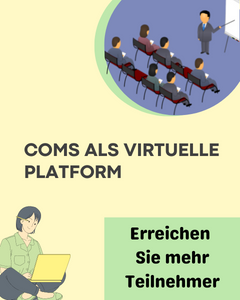Konferenzen > Biowissenschaften > Systembiologie und mathematische Biologie
Wählen Sie ein Land aus
ALLE LÄNDER (12)
1
WE Heraeus Workshop — J'active
09. Mär 2026 - 13. Mär 2026 • Les Houches, Frankreich
Eintrags-ID:
1687757
2
Addressing declining pollinator populations through new mathematics
30. Mär 2026 - 03. Apr 2026 • Pasadena, Vereinigte Staaten
Eintrags-ID:
1682344
3
Focus Workshop — The non-equilibrium genome - where Physics meets Biology
07. Apr 2026 - 09. Apr 2026 • Dresden, Deutschland
Eintrags-ID:
1683592
4
Workshop — Adaptive immune recognition in infectious disease and cancer
20. Apr 2026 - 24. Apr 2026 • Dresden, Deutschland
Eintrags-ID:
1683369
5
Dagstuhl-Seminar — Computational Metabolomics: Discovery of New Molecules to Actionable Insights
26. Apr 2026 - 30. Apr 2026 • Schloss Dagstuhl, Deutschland
Eintrags-ID:
1671391
Webseite:
6
A Roadmap towards Developing Mechanobiochemical Models for Single and Collective Cell Migration through Complex Non-Isotropic Environments
10. Mai 2026 - 15. Mai 2026 • Banff, Alberta, Kanada
Eintrags-ID:
1668591
7
Cancer Genomics, Multiomics, and Computational Biology
12. Mai 2026 - 14. Mai 2026 • Essen, Deutschland
Eintrags-ID:
1671146
8
NDy'26 — 4th International Workshop on Neurodynamics
26. Mai 2026 - 29. Mai 2026 • Castro-Urdiales, Spanien
Eintrags-ID:
1695248
9
ICMNS 2026 — International Conference on Mathematical Neuroscience
02. Jun 2026 - 05. Jun 2026 • McGill University – Montréal, Kanada
Eintrags-ID:
1687496
10
CompBio Asia 2026
14. Jun 2026 - 27. Jun 2026 • Singapore, Singapur
Eintrags-ID:
1698661
Webseite:
11
Nonlocal Aggregation Models in the Life Sciences
23. Aug 2026 - 28. Aug 2026 • Banff, Alberta, Kanada
Eintrags-ID:
1668827
12
Integrative Structural Biology: Bridging Fields, Techniques, and Scales
28. Sep 2026 - 01. Okt 2026 • Breckenridge, Colorado, Vereinigte Staaten
Eintrags-ID:
1693116
Conference-Service.com stellt der Öffentlichkeit ein Kalendarium wichtiger Konferenzen, Symposien und sonstiger Tagungen im wissenschaftlich-technischen Bereich zur Verfügung. Obwohl das Verzeichnis mit großer Sorgfalt zusammengestellt und ständig aktualisiert wird, weisen wir auf die Möglichkeit von Fehlern ausdrücklich hin. Bitte vergewissern Sie sich immer beim Veranstalter, bevor Sie über die Teilnahme oder Nichtteilnahme an einer Konferenz entscheiden.
Stand vom 1. März 2026



